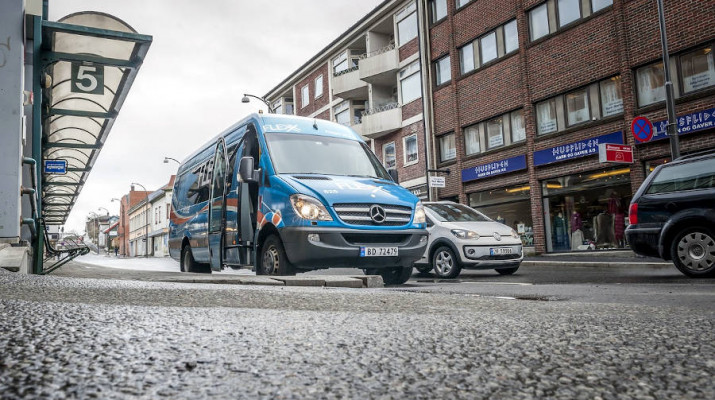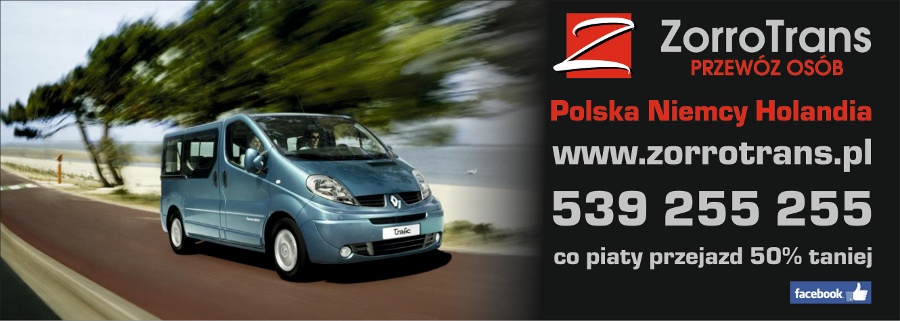In recent years, the increasing globalization of businesses has led to a surge in cross-border employment opportunities. For companies in the Netherlands and Germany, the labor market in Poland presents a valuable resource for skilled and dedicated workers. However, commuting from Poland to work in the neighboring countries can be challenging, given the distances and logistics involved. This is where transport companies specializing in minibuses play a vital role. In this article, we will explore the significance of transport companies that facilitate employee commutes from Poland to companies in the Netherlands and Germany, with a particular emphasis on the efficiency and advantages of utilizing minibuses for this purpose.
The Rise of Cross-Border Employment
In recent years, Poland has experienced a steady rise in emigration, with many of its citizens seeking better employment prospects abroad. Among the most sought-after destinations are the Netherlands and Germany, which offer competitive job opportunities, higher wages, and better standards of living. Simultaneously, companies in these countries have actively tapped into the talent pool in Poland to fill skill gaps and enhance their workforce’s diversity.
Challenges Faced by Cross-Border Commuters
While cross-border employment presents promising prospects for employees and businesses alike, commuting between Poland and neighboring countries poses several challenges:
1. Distance and Travel Time:
The geographical distance between Poland and the Netherlands or Germany can be significant, leading to long travel times. This can result in employee fatigue, reduced productivity, and lower job satisfaction.
2. Transportation Costs:
Commuting over long distances regularly can be financially burdensome for employees, especially considering the expenses of fuel, tolls, and vehicle maintenance.
3. Legal and Administrative Aspects:
Crossing international borders for employment purposes requires adherence to various legal and administrative procedures, such as work permits and visas, adding complexity to the commuting process.
4. Environmental Impact:
Long commutes in individual cars contribute to increased carbon emissions and environmental degradation, aligning poorly with sustainability goals.
The Role of Transport Companies
To address these challenges, transport companies have emerged as crucial players in facilitating cross-border employee commutes. These specialized companies offer a range of services, including private bus transport, carpooling arrangements, and shuttle services, providing a convenient and cost-effective solution for both employees and businesses.
The Advantages of Minibuses for Employee Transport
Of the various options provided by transport companies, minibuses have gained popularity for several reasons:
1. Cost-Effectiveness:
Minibuses allow a larger number of employees to share the travel expenses, significantly reducing the cost per person compared to individual car commutes or even traditional bus services.
2. Time Efficiency:
Minibuses often take optimized routes and can drop employees directly at their workplaces, minimizing travel time and avoiding unnecessary stops.
3. Comfort and Amenities:
Modern minibuses come equipped with comfortable seating, air conditioning, and other amenities, ensuring a pleasant and productive journey for the employees.
4. Ease of Coordination:
Transport companies handle the logistics of scheduling, route planning, and ticketing, relieving both employees and companies from the burden of coordination.
5. Reduced Environmental Impact:
By transporting multiple employees in a single vehicle, minibuses contribute to a reduced carbon footprint and align with sustainable transportation practices.
How Transport Companies Ensure Smooth Cross-Border Commuting
To provide seamless and efficient employee commutes, transport companies implement various strategies:
1. Expert Route Planning:
Transport companies carefully plan routes, considering traffic patterns, border crossing times, and employee locations, to optimize travel time.
2. Flexibility and Punctuality:
To accommodate varying work schedules, transport companies offer flexible pick-up and drop-off times while ensuring punctuality to minimize delays.
3. Safety Measures:
Safety is a top priority for transport companies. Minibuses are regularly maintained, and drivers adhere to all traffic regulations, ensuring the well-being of passengers.
4. Digital Solutions:
Many transport companies employ digital platforms for bookings, payments, and communication, streamlining the entire commuting process for employees.
Case Studies: Successful Implementation of Minibus Transport Services
Case Study 1: XYZ Transport
XYZ Transport, a prominent transport company, has been facilitating cross-border commutes for employees traveling from Poland to companies in the Netherlands and Germany for the past five years. By employing a fleet of modern minibuses, XYZ Transport has provided comfortable, reliable, and eco-friendly transport solutions. As a result, both employees and companies have experienced increased satisfaction and improved productivity.
Case Study 2: AB Transport Solutions
AB Transport Solutions established a strategic partnership with a multinational corporation based in the Netherlands. By offering dedicated minibuses for their employees commuting from Poland, the company significantly reduced transportation costs and contributed to the overall well-being of their workforce. The success of this initiative has led to an extension of services to other companies in Germany as well.
Conclusion
Transport companies specializing in minibuses play a pivotal role in bridging the gap between the labor markets of Poland, the Netherlands, and Germany. By offering cost-effective, time-efficient, and environmentally friendly solutions, these companies enable employees to pursue attractive job opportunities across borders without compromising their well-being. Moreover, businesses benefit from accessing a diverse talent pool, enhancing their competitiveness in the global market. As cross-border employment continues to thrive, the partnership between transport companies and corporations is expected to grow stronger, creating a win-win situation for all parties involved.
In conclusion, the collaboration between transport companies and businesses is not only an essential aspect of the globalized economy but also a testament to the power of innovation and cooperation in creating a better-connected world. As these transport solutions continue to evolve, they pave the way for a more sustainable and prosperous future for employees and companies alike.
More information on the website: www.zorrotrans.pl.




